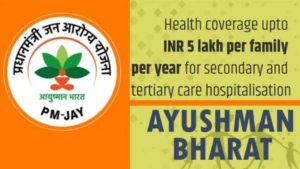As per information received from the Reserve Bank of India (RBI), the total amount of unclaimed deposits of Scheduled Commercial Banks (SCBs) was Rs. 24,356 crore, as on 31.12.2020. The bank-wise details are at https://static.pib.gov.in/WriteReadData/specificdocs/documents/2021/jul/doc202172711.pdf. The details of the individual unclaimed money of the depositors lying with banks are to made available on the websites of respective banks, as per the directions of RBI. Department of Posts also has published the details of such accounts on its website (www.indiapost.gov.in). RBI has informed that unclaimed deposits have increased by Rs. 5,977 crore in the year 2020, as compared to the year 2019, on account of depositors not having claimed their deposits from banks.
If an account remains unclaimed for 10 years, the amount is transferred to the Depositor Education and Awareness Fund (DEAF). According to RBI, the DEAF had about Rs 33,114 crore in its coffers as on 31st March 2020. The nominee or legal heir of the account holder needs to approach the bank with the deposit receipts, identity proof, and a copy of the death certificate of the account holder. The payment will be released by the bank after verifying the genuineness of the claim.
As per the order No No.Exem/32(18)/2016/Exemption dated 13-10-2017, various institutions defined in the rules were asked to transfer the unclaimed amount which remains inoperative for 7 years, to the Senior Citizens’ Welfare Fund. EPFO has made it easy for subscribers to claim money in dormant accounts through the online channel.
https://www.epfindia.gov.in/site_docs/PDFs/PQ_PDFs/PQ_BudgetSession2017_RS_English.pdf https://cpf1.mahadiscom.in/CpfWebProject/documents/Senior%20Citizen%20related.pdf
In case the subscriber has died, his nominees will get the money in the percentage specified by him. However, there is a time limit here. A nominee or EPFO member can apply within 25 years of the amount going into the Senior Citizen Welfare Fund. After that, it will go to the government coffers.
IRDAI asked all insurers having unclaimed amounts of policyholders for a period of more than 10 years as on September 30, every year have to transfer the same to Senior Citizens’ Welfare Fund (SCWF) on or before 1st March of the financial year.
https://www.irdai.gov.in/ADMINCMS/cms/whatsNew_Layout.aspx?page=PageNo4288&flag=1
https://www.irdai.gov.in/ADMINCMS/cms/whatsNew_Layout.aspx?page=PageNo3198&flag=1
The details of the individual unclaimed money of the policy holders lying with insurers are to made available on the websites of respective insurer, as per the directions of IRDAI. Beneficiaries will be able to claim the money under their policies up to 25 years from the date of transfer of the same to the SCWF. After 25 years, the funds will undergo ‘escheatment’ where funds cannot be reclaimed by the account holder.
Investor Education and Protection Fund (IEPF) holds unclaimed dividends and unpaid money from mutual funds and stocks that have remained unclaimed for seven or more years. Investors / depositors whose shares, unpaid dividends, matured deposits or debentures, etc. have been transferred to IEPF can reclaim their refund by registering themselves on the IEPF website: www.iepf.gov.in. As per the SEBI guidelines, all the AMCs and Association of Mutual Funds in India (AMFI) have to declare the details of unclaimed money on their websites.
The claimant needs to provide PAN, Folio Number, and Account Number – along with – date of birth, name, mobile number or email address. If there is some money, you need to fill the application form for unclaimed dividend and redemption and send it to the AMC or R&T (Registrar & Transfer). The mutual company thereafter will process and send your money across to you via cheque or ECS.As per the estimation of analysts, the total unclaimed money in India as bank accounts and deposits; insurance; and provident funds amounts more than Rs 82,000 crores.
Conclusion: Every investor should ensure that his/her hard-earned money is put to the right use and goes into the right hands after him/her. He/she should always keep his/her family members informed about the investments and finances and keep the financial information updated whenever there is a change. He/she should ensure to have provided the details of nominee for his/her investments and update as per the changes. This also avoids any future litigation.
Written By
Deshpande Abhishek,
Assistant Manager






